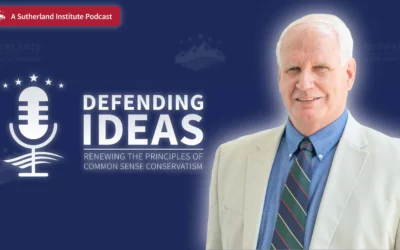
Written by William C. Duncan
December 18, 2023
Originally published in the Washington Examiner.
In recent years, the Supreme Court has repeatedly and clearly ruled that the law must accommodate religious beliefs and expression. Still, some states continue trying to ignore or subvert the clear constitutional protections for religious freedom, which benefit society, including the nonreligious, in areas including education, healthcare, social unity, and civil rights.
It is a matter of basic constitutional right, not to mention good for society generally, that churches and people of faith not be coerced into supporting things that conflict with their sincerely held religious views.
One example of an attempt to do just that is a Washington law that requires employers, including religious organizations, to cover abortions in their insurance plans. Even if the plans do not include maternity coverage, they must still cover drugs that act as abortifacients. The Cedar Park Assembly of God is challenging that law. Consistent with its Christian faith, Cedar Park values unborn life. Facilitating abortion is contrary to its faith commitments.
Recently, nine organizations made submissions to the U.S. Court of Appeals for the 9th Circuit in support of the church in Kirkland, Washington. These included a brief from Sutherland Institute , where I work, one on behalf of 18 states , and another from Notre Dame Law School’s Religious Liberty Clinic.
A brief from the Christian Legal Society and the Becket Fund points out that the Washington law allows a state official wide latitude in offering exemptions from the law’s mandate. This means that the state can treat religious and nonreligious conduct differently, raising an inference that it is discriminating against the religious conduct. Similarly, the Washington law exempts some secular health coverage, heightening the disparate treatment of religious and nonreligious employers.
The mandate also interferes with the constitutionally protected autonomy of churches. It is a basic principle that government can’t dictate or interfere with the beliefs, teachings, or governance of churches. Thus, the Supreme Court has made clear that courts may not decide employment disputes brought by employees who are responsible to promulgate the teachings of a religious school against their employer. Certainly it cannot be the case that a state is foreclosed from interfering with a church school’s decision not to employ someone who advocates against church teaching on the sanctity of life while still requiring that church to pay for another employee’s abortion.
Recently, the 9th Circuit ruled that a public school in California could not single out a religious student organization for disfavored treatment just because the group required its leaders to accept and live the fundamental beliefs of the group. This is an important development, and it points the way for a resolution of the Cedar Park case that protects the religious freedom of a church that makes important contributions to its members and its surrounding community.
Churches and people of faith around the nation make similar critical contributions, but they and their work are threatened if governments are allowed to hijack them to promote ideologies at odds with the mission of the religious organizations or to enact barriers to these organizations in performing their missions.
Even during the period when mistaken Supreme Court precedent prevented states from acting to protect unborn life, there was a broad consensus, reflected in federal law, that those with religious concerns about abortion should not be forced to participate in or pay for abortions. It is a matter of basic constitutional right that churches should not be forced to do so now.
More Insights
Read More
Protecting property rights against government overreach
While governments can continue to regulate land use, these regulations and fees must be justified by a government interest and proportional to the effect of the development’s impact on that interest.
Do we need to care about the Utah State Board of Education?
For any Utah voters who also feel like K-12 public education is headed in the wrong direction, learning about the candidates running for a seat on the Utah State Board of Education (USBE) is a wise choice this election season.
Defending education choice the right way
Education choice has exploded in popularity across the nation in recent years. So why does it remain a contentious point of debate in some parts of the country?


